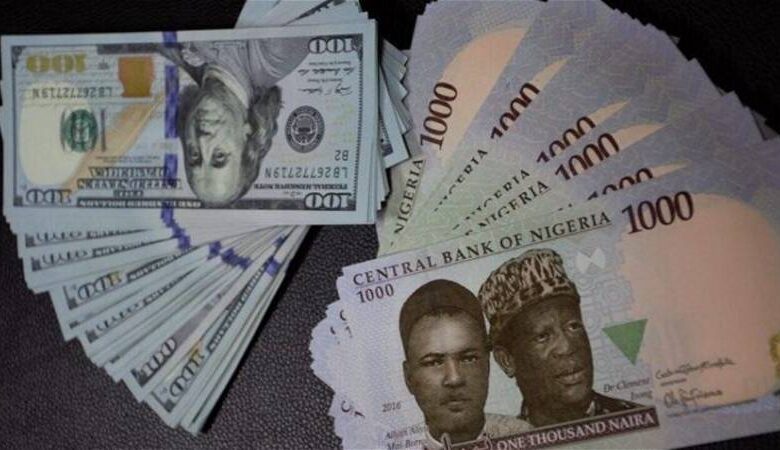Why Naira Is In Massive Recovery Race Across All Markets – Bankers

There are indications that the newly introduced foreign exchange market system by the Central Bank of Nigeria (CBN), is the driving force behind the recent massive appreciation of Nigeria’s local currency, the Naira, against the world’s major currencies.
Bankers who spoke to Vanguard attributed the appreciation of the Naira to the Electronic Foreign Exchange Matching System (EFEMS), which commenced last Monday.
In a circular directing banks to go live in the use of the Bloomberg BMatch as the Electronic Foreign Exchange Matching System (EFEMS) for trading activities in the forex market effective December 2nd, 2024, the CBN said: “Banks are strongly advised to liaise with Bloomberg representatives to expedite the onboarding process and address any technical or operational concerns promptly.
“The CBN will deploy its regulatory power to enhance the implementation of this directive and reserves the right to impose sanctions when necessary.”
For the first time since May 2024 the Naira recorded five consecutive days of appreciation across all segments of the foreign exchange market last week.
It closed at N1,535 and N1,555 to one USdollar in the official (otherwise known as the Nigerian Foreign Exchange Market, NFEM) and parallel market (otherwise known as black market) respectively at the weekend.
Impact of new e-Forex system
Providing insight on the impact of the new forex system, a bank executive who spoke to Vanguard on condition of anonymity said: “The system seems to be quite good. It seems to be achieving its goal as you get a feel of where the market is, real time.
“People are putting up orders on the system, matching trades and helping with market colour. It looks and seems to be good and the Naira has appreciated since its launch. CBN also intervened using the system.
“Time will tell if the market appreciation can be sustained. But there will definitely be some equilibrium down the line.”
Following this development, the margin between the parallel market and NAFEM rate narrowed to N20 per dollar from N118 per dollar as at close of trading last weekend.
Data from the Daily Nigerian Foreign Exchange Market (NFEM) published by the Central Bank of Nigeria, CBN, showed that Naira has gained It also represents N168 or 9.8 per cent appreciation from N1,720 per dollar previous week’s closing rate, the largest weekly gain since this year.
Data from FMDQ showed that the naira suffered sustained depreciation this year in the official market moving from N907.11 per dollar in January 2024 to N1,520.4 per dollar by May; N1,603.8 per dollar in July and N1,730 per dollar in October. The trend reversed to N1,600 threshold in the same month through November.
The rate of depreciation was worse in the parallel market where it hit as low as N1,775/$1 at end of November, 2024.
Black market operators give insight
Black market traders noted that the continuous daily appreciation of naira in the parallel market was due to availability of dollars which has even made individuals struggle to sell.
One of the operators, Mr. Yakubu Giwa said: “Today (last Saturday) the Niara stood at N1,500 per dollar. We black market traders are struggling to sell what we bought.
“The current appreciation of the Naira is as a result of activities such as people in the diaspora returning home, and those in the country are spending their money on food items and other preparations for the festive season. This is so every year during this period.
“Those in the diaspora are also sending money to their families and relatives in Nigeria resulting in more inflows.
“Individuals with dollars are bringing it out seeing the intense appreciation going on now but many are unable to sell it because those in the business are still struggling to sell theirs.
“The market dealers are also afraid of bearing losses because the naira might appreciate to N1,300 or N1,200 per dollar before next weekend. So they are cautiously buying dollars.”
Apart from the dollar, the exchange rate of other foreign currencies and prices of commodities like gold are also going down.
Source: Vanguardngr.com





